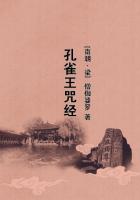"When I left her house, I noticed many Americans, as well as many Mexicans, on the streets. They were standing together, too; and there was something in their faces, and in the way their arms were carried, which was very striking and portentous. I fancied they looked coldly on me, and I was troubled by the circumstance. In the Plaza I saw the military band approaching, accompanied by half a dozen officers and a few soldiers. The noise stopped suddenly, and Captain Morello proclaimed as a bando (edict) of the highest authority, an order for all Americans to surrender their arms of every description to the officials and at the places notified."
"Very good!"
"Maria, nothing could be worse! Nothing could be more shameful and disastrous. The Americans had evidently been expecting this useless bombast, and ere the words were well uttered, they answered them with a yell of defiance. I do not think more than one proclamation was necessary, but Morello went from point to point in the city and the Americans followed him. I can tell you this, Maria: all the millions in Mexico can not take their rifles from the ten thousand Americans in Texas, able to carry them."
"We shall see! We shall see! But, Roberto, you at least will not interfere in their quarrels. You have never done so hitherto."
"No one has ever proposed to disarm me before, Maria. I tell you frankly, I will not give up a single rifle, or revolver, or weapon of any kind, that I possess. I would rather be slain with them. I have never carried arms before, but I shall carry them now. I apologize to my countrymen for not having them with me this afternoon. My dearest wife! My good Maria! do not cry in that despairing way.
You will be killed, Roberto! You will be a rebel! You will be shot like a dog, and then what will become of me and my daughters?"
"You have two sons, Maria. They will avenge their father, and protect their mother and sisters."
"I shall die of shame! I shall die of shame and sorrow!"
"Not of shame, Maria. If I permitted these men to deprive me of my arms, you might well die of shame."
"What is it? Only a gun, or a pistol, that you never use?"
"Great God, Maria! It is everything! It is honor! It is liberty! It is respect to myself! It is loyalty to my country! It is fidelity to my countrymen! It is true that for many years the garrison has fully protected us, and I have not needed to use the arms in my house. But thousands of husbands and fathers need them hourly, to procure food for their children and wives, and to protect them from the savages. One tie binds us. Their cause is my cause. Their country is my country, and their God is my God. Children, am I right or wrong?"
They both stepped swiftly to his side. Isabel laid her cheek against his, and answered him with a kiss. Antonia clasped his hand, stood close to him, and said: "We are all sure that you are right, dear father. My mother is weary and sick with anxiety, but she thinks so too. Mother always thinks as you do, father. Dear mother, here is Rachela with a cup of chocolate, and you will sleep and grow strong before morning."
But the Senora, though she suffered her daughter's caresses, did not answer them, neither did she speak to her husband, though he opened the door for her and stood waiting with a face full of anxious love for a word or a smile from her. And the miserable wife, still more miserable than her husband, noticed that Isabel did not follow her. Never before had Isabel seemed to prefer any society to her mother's, and the unhappy Senora felt the defection, even amid her graver trouble.
But Isabel had seen something new in her father that night; something that touched her awakening soul with admiration.
She lingered with him and Antonia, listening with vague comprehension to their conversation, until Rachela called her angrily; and as she was not brave enough for a second rebellion that night, she obediently answered her summons.
An hour afterwards, Antonia stepped cautiously within her room. She was sleeping, and smiling in her sleep. Where was her loving, innocent soul wandering? Between the myrtle hedges and under the fig-tree with her lover? Oh, who can tell where the soul goes when sleep gives it some release?
Perhaps it is at night our angels need to watch us most carefully. For the soul, in dreams, can visit evil and sorrowful places, as well as happy and holy ones. But Isabel slept and smiled, and Antonia whispered a prayer at her side ere she went to her own rest.
And the waning moon cast a pathetic beauty over the Eden-like land, till dawn brought that mystical silence in which every new day is born. Then Robert Worth rose from the chair in which he had been sitting so long, remembering the past and forecasting the future. He walked to the window, opened it, and looked towards the mountains. They had an ethereal hue, a light without rays, a clearness almost polar in its severity. But in some way their appearance infused into his soul calmness and strength.
"Liberty has always been bought with life, and the glory of the greatest nations handseled with the blood of their founders." This was the thought in his heart, as looking far off to the horizon, he asked hopefully:
"What then, O God, shall this good land produce That Thou art watering it so carefully?"















